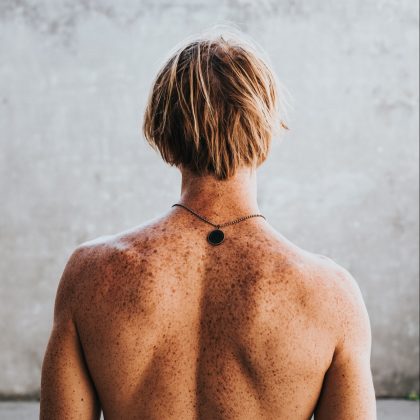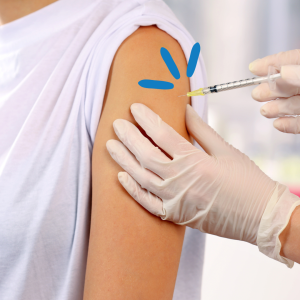
Skin Checks in Mandurah by Brecken Health – Get A Mole Check
Perth is one of the sunniest capital cities in the world, and we love our outdoor lifestyle. But spending so much time outside, in the sun, exposes us to harmful UV rays.
Too much exposure to these UV rays can cause skin cancer.
Australia has one of the highest rates of skin cancer in the world. According to the Cancer Council, around 2 in 3 people will be diagnosed with some form of skin cancer during their lifetime.
The good news is that about 95% of skin cancers are treatable if caught early. A skin or mole check is the easiest way to detect skin cancer.
What is a skin check?
A skin check is a simple process that usually takes 15 – 30 minutes on average. They can be easily incorporated into a general check-up with your GP.
At Brecken Health Mandurah, our skin cancer checks are thorough and cover your entire body. After all, skin cancer doesn’t just target specific places—it can show up everywhere.
Your GP uses a hand-held device that illuminates and magnifies your skin. Known as a dermoscopy, this provides us with a detailed view of your skin. We’ll inspect your freckles and moles, taking a closer look at your hair follicles and capillaries for any irregularities.
You typically don’t need to provide samples or specimens, and there are no invasive procedures. It’s a simple check to ensure there are no areas of concern.
If there are, your GP will refer you to a specialist to help you get the necessary care.
How do you get a skin check in Mandurah?
Getting a skin check is easy. Contact us or speak with your GP at your next appointment; they can book you in for one.
Who should get a skin check?
We recommend that everyone get a skin check. This will give you peace of mind that you’re looking after yourself and help you and your GP work together to promote your skin health.
However, some people are more susceptible to skin cancers than others. The people most at risk of skin cancers usually have one or a combination of the following factors:
- Pale skin
- Advancing age (as your skin receives more damage, the greater your chances of this damage developing into cancer)
- A history of severe sunburn
- A history of skin cancers
- Family history of melanoma
- Moles already on your body
- A history of strange-looking moles appearing on your body
How often should I get a skin check?
Living in Australia, we’re often out in the sun. So, getting a skin or mole check once a year is generally considered safest. This ensures you can closely monitor your skin’s condition and monitor any freckles or moles that may be of concern.
Book a mole check in Mandurah at Brecken Health.
We’re here to help you look after your skin. And there’s no better time than now to do it.
Contact our friendly team today to book a skin check and help ensure the safety of your skin.
What does a skin check involve?
A skin check is actually a simple process, and on average usually takes around 15 – 30 minutes. They can be easily incorporated into a general check-up with your GP.
Our skin cancer checks are thorough, and cover your entire body. After all, skin cancer doesn’t just target specific places—it can show up everywhere.
Your GP uses a hand-held device that illuminates and magnifies your skin. Known as a dermoscopy, this provides us with a detailed view of your skin.
We’ll inspect your freckles and moles, taking a closer look at your hair follicles and capillaries for any irregularities.
You typically don’t need to provide any samples or specimens, and there’s no invasive procedures. It’s a simple check to ensure there are no areas of concern.
If there are, your GP will provide you with a referral to a specialist, to help you get the care you need.
What are the biggest risks for skin cancer?
Unfortunately, some people are more susceptible to skin cancers than others. The people most at risk of skin cancers usually have one or a combination of the following factors:
- Pale skin
- Advancing age (as your skin receives more damage, the greater your chances of this damage developing into a cancer)
- A history of severe sunburn
- A history of skin cancers
- Family history of melanoma
- Moles already on your body
- A history of strange-looking moles appearing on your body
How long does a skin cancer check go for?
A skin check normally takes about 15-20 minutes, where a dermatoscope is used to closely look and inspect any unusual spots over your body. Should any spots look suspect, the skin doctor may take a photo and even take a biopsy to be sent away for further testing.


